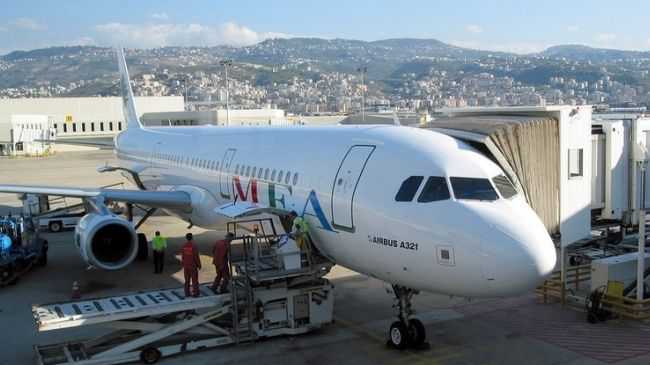As Shelling Kills More Than 50 in Homs, Former Damascus Ally Seeks Summit to Press for Leader’s Ouster; Iran Backs Assad
By JOE PARKINSON, CHARLES LEVINSON and JAY SOLOMON
Associated Press
A Syrian rebel runs for cover amid fire from unseen pro-Assad forces on Wednesday in Idlib, northern Syria.
ISTANBUL—As Syrian forces pounded the city of Homs with tank shells and rockets, adding dozens of fatalities to the siege’s five-day toll, Turkey pushed to the lead of countries trying to halt President Bashar al-Assad’s crackdown on his enemies.
Turkey called for an international summit “as soon as possible” to coordinate Syria policy between Middle East and world powers and press Mr. Assad to step aside. “We won’t leave Syria to its own destiny,” Foreign Minister Ahmet Davutoglu said in an interview with Turkey’s NTV television. “We are determined to form a platform for broad international consensus.”
Russia’s Foreign Minister Sergei Lavrov calls on countries with influence over the Syrian opposition to press them to enter a dialogue with embattled President Bashar al-Assad. (Video: Reuters/Photo: Getty Images)
ReutersA Syrian living in Jordan protested Tuesday against Russia’s support of the Syrian regime, in front of Russian embassy in Amman.
The Turkish move comes after Russia and China vetoed a United Nations Security Council resolution pressing Mr. Assad to step aside. On Sunday, the day after the veto, the U.S. raised a call for a “friends of democratic Syria” that would ramp up efforts to push Mr. Assad from power.
Such a coalition could provide a platform outside the U.N. to boost diplomatic pressure on Damascus. The U.N.’s latest stalemate came after efforts by the Arab League of nations also failed to stem Syria’s violence, which began nearly a year ago with harsh government clampdowns on predominantly peaceful protests and has since brought the country to the edge of civil war.
For Turkey, the moves cement a dramatic reversal during the past year in its alliance with Damascus. They also underline Ankara’s coalescence with Washington on regional policy, following a recent strain that saw Turkey moving closer to Iran and engaging in rhetorical sparring with a top U.S. ally in the region, Israel.
Turkey and the U.S. are likely to be joined by countries in Europe and the Arab world that have also called for Mr. Assad to step aside. Separately, senior European Union officials said Wednesday the body is considering new sanctions on Syria.
As international lines against Mr. Assad deepened, one of his allies stood firm. Iranian President Mahmoud Ahmadinejad pledged Iran’s support following a meeting Wednesday with Syria’s top cleric.
Iranian Deputy Foreign Minister Hossein Amir Abdollahian met with Syria’s foreign minister in Damascus and said afterward that Iran remained “confident that the Syrian leadership and people will be able to overcome the current events,” according to Syria’s state-run Sana news agency.
Opposition activists in Syria say dozens of civilians have been killed in Homs as the military offensive in the city advances. (Video: Reuters)
The Turkish bid to form an international platform is reminiscent of the Libya Contact Group, an informal group of countries that met several times, including in Istanbul, to harmonize policy during the uprising against Moammar Gadhafi. Mr. Davutoglu said that in recent days he had laid the groundwork for such a meeting, discussing Syria with his counterparts in Italy and Qatar.
Any Libya parallels are likely to be greeted coolly by Russia and China, which have characterized international efforts in Libya as cover for forcing regime change. Mr. Davutoglu didn’t say whether Russia and China would take part but said Turkey wanted the group to be “as wide as possible.”
Russian President Dmitry Medvedev took a flurry of telephone calls from world capitals over the veto, with French President Nicolas Sarkozy and Turkish Prime Minister Recep Tayyip Erdogan both conveying on Wednesday that Mr. Assad has lost legitimacy and must step aside, according to their offices.
Mr. Medvedev countered that foreign interference is “not an option,” the Kremlin said. Mr. Medvedev instead said that a search to end bloodshed in Syria should continue, including at the U.N. Security Council, according to the Kremlin.
Meanwhile, Syrian forces mounted their fifth consecutive day of attacks on Homs, a city north of Damascus along the Lebanese border, striking with artillery, tank shells, rockets and mortars.
The city, a melting pot of ethnicities that mirror Syria’s own ethnic and religious diversity, has been the heart of the 11-month uprising. It has also been a base for rebel fighters thanks in part to the smuggling routes from Lebanon through which activists and locals say opposition fighters are obtaining weapons.
WSJ’s Greg White checks in on Mean Street with the latest on pressure on Russia to help end violence in Syria. Photo: AP.
Read More
- In Syria, Russia Extracts No Vows
- Facing Criticism, China Hints at Syria Action
- America Exits Syria as Russia Makes Push
- U.S. Steps Up Pressure to Oust Assad
- China Defends Veto in Vote on Syria
Regional Upheaval
Track events day by day in the region.
- More photos and interactive graphics
Amateur videos shot by Homs residents and posted to YouTube by opposition activists showed what were characterized as Wednesday attacks, with shells striking residential buildings and by pillars of smoke rising into the sky. One video appeared to show a resident standing by the corpse of a child, holding a piece of rocket shrapnel that he said had struck the child’s home. “What is the U.N. waiting for?” he said in the video. “Are these animals that are dying?”
Another showed a column of Syrian army trucks, including tanks and armored vehicles, rolling along an otherwise deserted road. Activists said it was evidence of the Syrian army’s buildup in and around the city.
The images couldn’t be corroborated but broadly match accounts from residents reached by telephone throughout the week. The Syrian Observatory for Human Rights, a U.K.-based opposition group, said between 53 and 60 people died in Homs on Wednesday. The group and other activists said late Tuesday night members of a pro-Assad militia known as the Shabiha had murdered 20 members of three entire opposition families. Elsewhere in Syria, activists reported an additional 17 people killed by pro-regime forces, while rebels killed four Syrian soldiers in Zabadani, a suburb of the capital Damascus. Another opposition group put the death toll in Zabadani and the nearby town of Madaya at 18 deaths, saying that phone and power had been cut to the towns, which “are facing a humanitarian crisis.”
The regime has blamed terrorist gangs and criminals for the violence in Homs. The state-controlled Syrian news agency on Wednesday reported that rebel-fired mortars struck a nearby oil refinery in Homs, setting two oil storage tanks ablaze.
Russia’s foreign minister met with Syrian President Assad and said his message of the need to step up efforts to end the violence in Syria “has been heard.” Jeff Grocott has details on The News Hub. Photo: AP
Related Video
Russian Prime Minister Vladimir Putin says the world faces a growing “cult of violence” and Moscow must not let events like those in Libya and Syria be repeated in Russia. (Video: Reuters/Photo: Getty Images)
Mr. Davutoglu’s comments came ahead of his departure Wednesday for Washington for previously scheduled bilateral meetings with U.S. Secretary of State Hillary Clinton.
The senior diplomats are expected to explore ways to more quickly and effectively provide assistance to Syrian refugees who have sought haven in Turkey and other neighboring countries, U.S. officials said. But they will also discuss the tricky question of potentially providing aid to the victims of violence inside Syria.
The meetings are also expected to focus on Turkey’s ties with the Free Syrian Army, a loosely affiliated network of rebel fighting units and defected army regulars. Ibrahim Kalin, an adviser to Turkey’s Prime Minister, said in a column in pro-government daily Zaman on Wednesday that the “next stage in Syria will be to further empower the opposition.”
Turkey has quietly raised the idea of establishing a “buffer zone” inside Syria to protect civilians from Mr. Assad’s forces. But to do so, U.S. officials acknowledge, the international community would need to assemble some sort of outside military force to deter Syrian forces. They worry that without such firepower, Syrian forces could easily overwhelm any buffer zones or humanitarian corridors and potentially turn international monitors into hostages.
Mr. Davutoglu declined to discuss whether the government was considering a military-backed humanitarian intervention to help quell the violence.
Ankara and Damascus were close regional allies until this summer, when Turkish officials said President Assad’s refusal to end a bloody crackdown against opponents forced a shift. Ankara has repeatedly warned that Syria’s complex ethnic and sectarian mix could disintegrate, plunging the nation into chaos and potentially forcing neighboring nations to intervene.
Turkey has for months sheltered several thousand Syrian refugees, including members of the rebel Syrian Free Army. The opposition Syrian National Council in December opened an office in Istanbul.
“Turkey is beyond the point of no return; it has burned its bridges with Damascus and bet heavily on regime change. The failure at the U.N. means Ankara will further strengthen its cooperation with the U.S. on Syria, but they’ll want to avoid that perception by building a coalition,” said Sinan Ulgen, a former Turkish diplomat now with the Carnegie Endowment for International Peace.
Turkish analysts say Ankara is a reluctant hard-power player in the region, but the government’s fears of regional sectarian conflict are spurring a more activist policy.
Just a year ago, Mr. Assad was Exhibit A in Turkey’s “zero-problems-with-neighbors” foreign policy. Trade between the neighbors almost doubled to $2.3 billion in the two years to 2010 after Ankara cut visa requirements and eased tariffs. That policy was replicated across the region, boosting relations and trade with neighboring Muslim regimes, while downgrading ties with former ally Israel.
The Arab Spring, however, upended that policy as allies such as Libya’s Gadhafi were pushed aside and Shiite-Sunni tensions rose across the region.
The collapse of that doctrine has dovetailed with what analysts describe as an increasing symmetry of Washington and Ankara’s policies after a period of significant strain in 2009-2010, when Turkey moved closer to Iran and tensions with Israel were at boiling point over the killing of seven Turkish nationals by Israeli commandos on the Gaza-bound Mavi Marmara flotilla.
Analysts say the partnership has been bolstered in recent months by Turkey’s strong backing of pro-democracy movements during Arab Spring uprisings and its decision to host a NATO missile shield designed to contain Iran. Turkish and U.S. diplomats say they can’t remember a time when cooperation between Ankara and Washington was closer, citing that President Barack Obama called Turkey’s prime minister more than any other leader except Britain’s prime minister in 2011.
—Ayla Albayrak, Gregory L. White and William Horobin contributed to this article.
Write to Joe Parkinson at [email protected], Charles Levinson at [email protected] and Jay Solomon at [email protected]


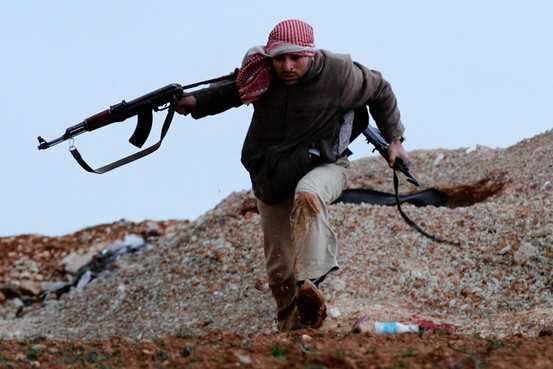









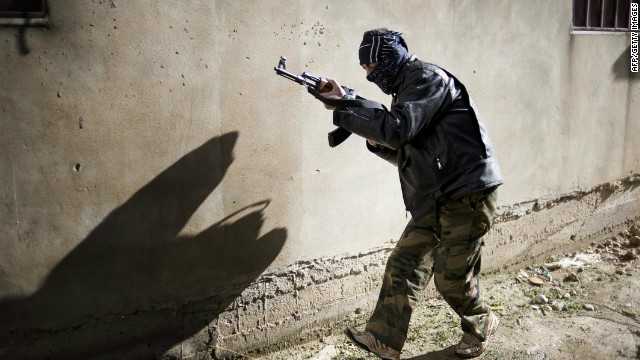

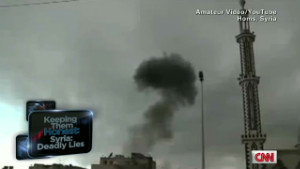 Men, women and children trapped in Syria
Men, women and children trapped in Syria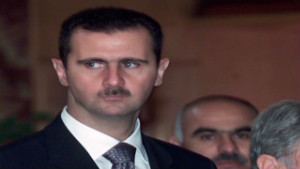 Syria’s accidental President al-Assad
Syria’s accidental President al-Assad
